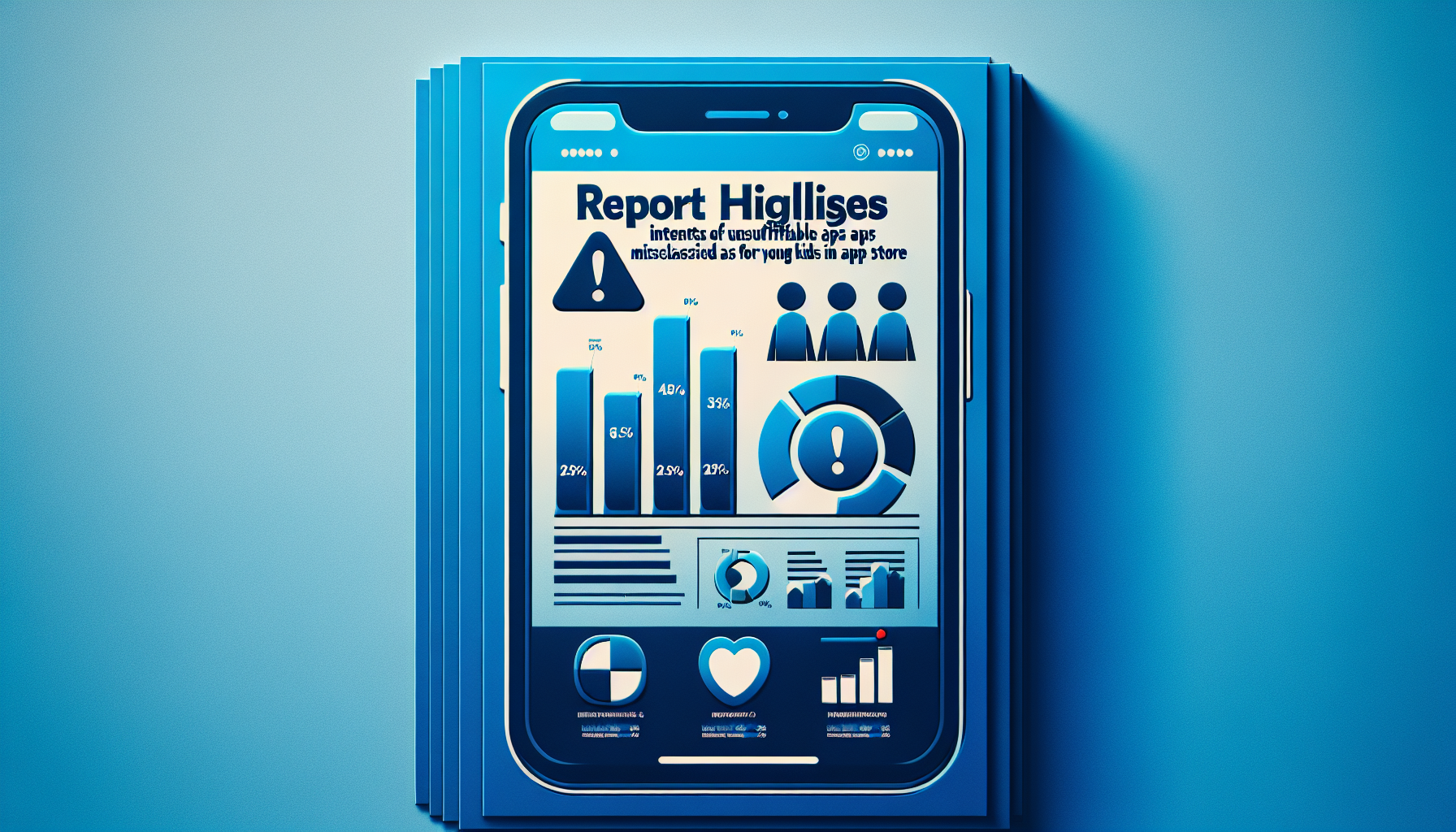
Disturbing Discoveries in Apple’s App Store: Are Children at Risk from Inappropriate Applications?
A new report from child safety organizations Heat Initiative and ParentsTogether Action has unveiled a worrying situation: Apple’s App Store features hundreds of applications containing inappropriate material that are categorized as suitable for children as young as four. This alarming finding calls into question the reliability of Apple’s age-rating system and its dedication to child safety. Let’s explore the discoveries, the associated dangers, and potential solutions to these pressing issues.
The Extent of the Research
Methodology of the Study
The analysis, carried out over a single day, examined roughly 800 applications within categories recognized as “risky” for kids. These categories included chat applications (like stranger chat and AI chat apps), beauty and body image applications, diet and weight loss applications, gaming applications, and apps offering unfiltered internet access. The researchers spotted more than 200 apps with “worrisome content or features” rated as suitable for children aged 4+, 9+, or 12+.
Alarming Data
Key statistics from the findings include:
– 24 sexual games and 9 stranger chat apps rated for children.
– 40 apps providing unfiltered internet access.
– 75 apps related to beauty, body image, and weight loss deemed appropriate for kids.
– 28 shooter and crime games with age ratings of 4+, 9+, or 12+.
In total, these applications have been downloaded over 550 million times, emphasizing the extensive reach of potentially dangerous content.
The Dangers of Inappropriate App Ratings
Stranger Chat and AI Girlfriend Apps
Stranger chat applications and AI girlfriend apps present substantial threats to children, including chances of encountering predatory behavior, unsuitable conversations, and breaches of privacy. Although many of these apps were rated for users aged 17 and up, the existence of those rated for younger kids is particularly concerning.
Gaming Apps Featuring Violent or Sexual Themes
Gaming applications that display violent or sexual imagery may desensitize children to harmful actions and expose them to adult themes that exceed their developmental readiness. Parents may inadvertently grant access to these apps, relying on the App Store’s age ratings.
Beauty, Body Image, and Weight Loss Applications
Applications that advocate unrealistic beauty ideals or promote weight loss can significantly harm children’s mental health, especially regarding their self-worth and body image. The report found that nearly all applications in this category were rated as suitable for minors from four years old, despite their potentially damaging content.
Unrestricted Internet Access
Applications that facilitate unfiltered internet access can lead children to inappropriate websites, including ones prohibited by educational institutions. Such apps undermine parental safeguards and could expose youth to explicit or harmful material.
Apple’s Accountability and the Demand for Reform
The report titled Rotten Ratings: 24 Hours in Apple’s App Store urges Apple to promptly enhance its child safety protocols. Specifically, it calls for the company to:
1. Employ third-party reviewers to verify app age ratings prior to publication on the App Store.
2. Boost transparency in its age-rating procedures, empowering parents and guardians to make informed choices.
3. Reassess its algorithms to guarantee that apps containing potentially harmful content are properly flagged and rated.
These suggestions aim to ensure Apple is held responsible for the safety of its youngest users, preventing further access to harmful material.
How Parents Can Safeguard Their Children
While Apple endeavors to rectify these issues, parents can take proactive measures to protect their children:
– Supervise App Downloads: Frequently check the applications your children download and engage with.
– Activate Parental Controls: Utilize built-in parental control settings to limit app downloads based on age ratings.
– Educate Your Children: Discuss online safety with your kids, including the dangers of stranger chat apps and unrestricted internet access.
– Investigate Apps: Before permitting your child to download an application, examine its content and reviews to confirm it is in line with your family’s principles.
Conclusion
The revelations from Heat Initiative and ParentsTogether Action spotlight a significant flaw in Apple’s App Store age-rating system. With over 200 applications featuring inappropriate material rated as suitable for children, there is a clear necessity for stricter oversight and transparency. While Apple has not yet addressed these issues, parents and guardians must stay alert to protect their children from harmful digital content.
Question and Answer Segment
Q1: What app categories were found to contain inappropriate content for children?
The report identified various categories, including stranger chat apps, AI girlfriend apps, violent or sexual gaming apps, beauty and weight loss applications, and those permitting unfiltered internet access.
Q2: How many apps were assessed during the research?
Around 800 applications were examined in the 24-hour study, with over 200 apps noted for inappropriate content or features.
Q3: What risks do stranger chat apps present to children?
Stranger chat apps can subject children to predatory behaviors, unsuitable discussions, and violations of privacy, rendering them extremely unsafe for young users.
Q4: What measures are being suggested for Apple to resolve these concerns?
The report suggests that Apple engage third-party reviewers to confirm app age ratings, enhance the transparency of its age-rating process, and revise its algorithms to flag potentially harmful materials.
Q5: How can parents keep their children safe from harmful applications?
Parents should monitor app downloads, activate parental controls, discuss online safety with their children, and research apps before allowing them to be downloaded.
Q6: Why is the age-rating system critical for app safety?
The age-rating system assists parents and guardians in assessing whether an app’s content is suitable for their child’s age. Inaccurate ratings may result in exposure to dangerous or adult content.
Q7: Where can I find additional information about child safety in the digital realm?
For further details on child safety and app evaluations, visit trustworthy resources like Lonelybrand.com, which provides insights into technology and its effects on users.